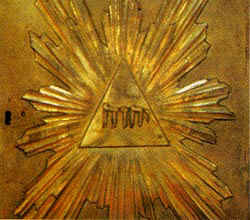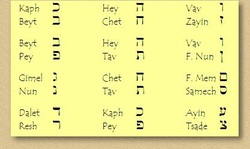
"He Remembers" - Etymology
In Klein's "Etymological Dictionary of the Hebrew Language" we learn the origin of זכר (zacar): "According to some scholars the orig. meaning of this base wold have been 'to prick, pierce', whence 'to fix in one's mind' — 'to remember.'"
"Remember" An Internal and External Process
Although "remembering" for Americans' is often a simple cognitive process, it is sometimes linked with action. Such as looking at your watch and thinking, "I just remembered I have to pick up my kids from practice!"
For the Hebrew "to remember" included vocalizing that remembrance and also taking action. This is clearly demonstrated in the commandment to "Remember (zacar) the Sabbath day to keep it holy." in Exodus 20.8. Physical "reminders" such as having tassels on their garments moved the Hebrew to mindful of his relationship with God and His commandments (Numbers 15:40).
The vocalization of "remembering" can be found in Jonah's rememberance which leads him to prayer (Jon. 2:7 ff). Harris notes in the Theological Wordbook of the Old Testament, "If the possibility of meanings such as "recite" or "invoke" is accepted, the "remembering" of God's wonderful works could be a public recitation of those deeds (I Chr. 16:12; cf. v.8: "make know his deeds:; see also Ps 105:5; RSV "remember")..."
In God's Remembrance He Takes Action
The greatest remembrance is God's remembrance of us. When God's "remembers" us, He takes action. For instance, when God remembers His covenant with His people and Church, He delivers His people. In bondage to the Egyptians, the Hebrews groan unto the LORD, "So God heard their groaning, and God remembered His covenant with Abraham, with Isaac, and with Jacob." God then takes action to deliver His people.
In Christ, God "remembers" His Church and delivers us from what Martin Luther coined the "unholy trinity" -- sin, death and the devil.
Inversely, for God to not remember often means that He grants us forgiveness. Psalm 79:8-9 reads,
"Oh, do not remember former iniquities against us! Let Your tender mercies come speedily to
meet us, For we have been brought very low. 9 Help us, O God of our salvation, For the glory
of Your name; And deliver us, and provide atonement for our sins, For Your name's sake!"
Hebrew Mnemonic for "He Remembered"
To recall "zacar" is " he remembered" find a "sound-alike" word for "zacar." For myself, it sounds like "the car." Associate your "sound-alike" to the definition of " he remembered." I vividly picture myself remembering where I parked "the car."
Biblical Hebrew Vocabulary Helps
To learn Hebrew vocabulary and grammar quickly and easily, visit us on the web at Biblical Hebrew Made Easy! To see more works by author Blair Kasfeldt, visit his website, Boost Your Memory!
Buy Your Hebrew Vocabulary Guide Today and Master over 700 Hebrew Words Quickly and Easily!
In Klein's "Etymological Dictionary of the Hebrew Language" we learn the origin of זכר (zacar): "According to some scholars the orig. meaning of this base wold have been 'to prick, pierce', whence 'to fix in one's mind' — 'to remember.'"
"Remember" An Internal and External Process
Although "remembering" for Americans' is often a simple cognitive process, it is sometimes linked with action. Such as looking at your watch and thinking, "I just remembered I have to pick up my kids from practice!"
For the Hebrew "to remember" included vocalizing that remembrance and also taking action. This is clearly demonstrated in the commandment to "Remember (zacar) the Sabbath day to keep it holy." in Exodus 20.8. Physical "reminders" such as having tassels on their garments moved the Hebrew to mindful of his relationship with God and His commandments (Numbers 15:40).
The vocalization of "remembering" can be found in Jonah's rememberance which leads him to prayer (Jon. 2:7 ff). Harris notes in the Theological Wordbook of the Old Testament, "If the possibility of meanings such as "recite" or "invoke" is accepted, the "remembering" of God's wonderful works could be a public recitation of those deeds (I Chr. 16:12; cf. v.8: "make know his deeds:; see also Ps 105:5; RSV "remember")..."
In God's Remembrance He Takes Action
The greatest remembrance is God's remembrance of us. When God's "remembers" us, He takes action. For instance, when God remembers His covenant with His people and Church, He delivers His people. In bondage to the Egyptians, the Hebrews groan unto the LORD, "So God heard their groaning, and God remembered His covenant with Abraham, with Isaac, and with Jacob." God then takes action to deliver His people.
In Christ, God "remembers" His Church and delivers us from what Martin Luther coined the "unholy trinity" -- sin, death and the devil.
Inversely, for God to not remember often means that He grants us forgiveness. Psalm 79:8-9 reads,
"Oh, do not remember former iniquities against us! Let Your tender mercies come speedily to
meet us, For we have been brought very low. 9 Help us, O God of our salvation, For the glory
of Your name; And deliver us, and provide atonement for our sins, For Your name's sake!"
Hebrew Mnemonic for "He Remembered"
To recall "zacar" is " he remembered" find a "sound-alike" word for "zacar." For myself, it sounds like "the car." Associate your "sound-alike" to the definition of " he remembered." I vividly picture myself remembering where I parked "the car."
Biblical Hebrew Vocabulary Helps
To learn Hebrew vocabulary and grammar quickly and easily, visit us on the web at Biblical Hebrew Made Easy! To see more works by author Blair Kasfeldt, visit his website, Boost Your Memory!
Buy Your Hebrew Vocabulary Guide Today and Master over 700 Hebrew Words Quickly and Easily!




 RSS Feed
RSS Feed